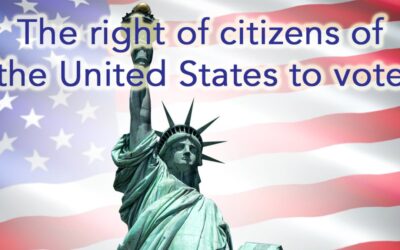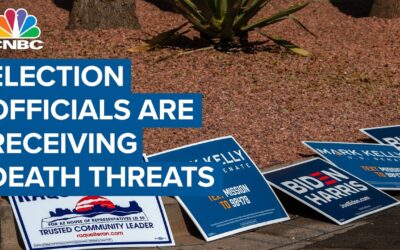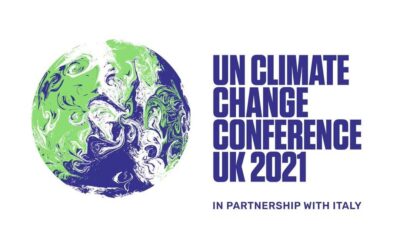Perfectly Legal, But Wrong
When “perfectly legal” is a lame excuse for doing the wrong thing
Scotus the Bogus?
The late term Supreme Court decisions on guns and abortion present some odd quandaries about rights, and Constitutional interpretation. If the Court seems unusually political instead of judicial to you, you’re probably right.
Deliberately Wrong on “Rights”?
Getting it (deliberately) wrong about “states’ rights” when it comes to the voting rights of U.S. citizens.
The Death Threats to Dr. Fauci
The many death threats to public officials are] one of the more disturbing realities of our time. Most of these people, often election officials or public health officials, are trying their best just to do their duty. But the threats continue, and have escalated. In brief, sadly, many of these threats are “perfectly legal.” I’ll explain why.
The Absurdity of COP 26 at Glasgow
How COP26 listens to the wealthy and ignores the needs of the many.
Demolishing the American Dream of Home Ownership
One big reason why Americans can’t find affordable housing? Wall Street investors.
CYA: Cover Your Assets, Corporations!
A real justice system would consistently ensure that that people are held accountable for harms they do to others. That goes for corporations, too. But our legal system, with its many “loopholes,” can create oodles of un-accountability, especially when high-powered lawyers enter the picture. And they surely have.
Free Speech, Electoral Lies, and Outright Sedition
It’s legal to spread lies about the election, but we’re close to sedition here.
Just Pretending to be Patriotic: The GOP in 2020
The Grand Old Party and the Senate Majority Leader position themselves as great patriots, defenders of “freedom” and “the American Way.” Certainly President Trump has (literally) wrapped his arms around the flag in ways that his followers adore, for Republicans...
Don Mayer is a writer who teaches law, ethics and sustainability at the University of Denver’s Daniels College of Business. This forum is for all who are interested in the sometimes crazy space between what is ethical (or “right”) and what is “perfectly legal.” You are welcome to subscribe to our monthly newsletter for the latest conflicts between what is legal and what is ethical.
Why “Perfectly Legal but Wrong?!”
People do seem to use the “it’s legal” excuse when something they do raises doubt about their moral bearings. Adding “perfectly” doesn’t do much more. If it’s legal, fine, but nothing is more “perfectly legal” than any other act that is legal. In fact, the use of “perfectly” often looks like a kind of fig leaf to cover the fact that someone is taking advantage of a loophole of some kind, or that the law just hasn’t caught up to that particular dubious practice.
In 2003, Pulitzer Prize winning journalist David Cay Johnston wrote “Perfectly Legal: The Covert Campaign to Rig Our Tax System to Benefit the Super-Rich–and Cheat Everybody Else.” The title tells it all: the U.S. public treasury is being systematically deprived of revenue by the so-called “super rich,” a slice of the 1% that has the most to gain by influencing the tax laws. The Panama Papers revealed that wealthy folks all over the world are evading taxes; while you might conclude they are “smart” on the basis that government is so bad it needs to be starved of revenue, but others (such as Johnston) would also regard them as shirking duties of citizenship and community.
In short, just because a practice is legal, doesn’t make it right. Opponents of abortion have known and acted on this for years. On the other side of the political spectrum, gun control advocates say that just because a mentally challenged young man can legally buy an AR-15 without a background check doesn’t make it “right.” Although in many places in the U.S., both abortions and unchecked purchases of assault weapons are, as some would say, “perfectly legal.”
People and businesses get into trouble all the time not knowing the difference between what they have a right to do and what is right to do. In 2018, United Airlines employees decided it was “right” to call security when a seated passenger refused to give up his seat on an overbooked flight. They had a right to do so, but the inevitable iPhone videos of the man being dragged forcibly off the plane struck most observers as horribly wrong.
At a Philadelphia Starbucks, company policy was enforced to call police to arrest “trespassing” customers: African Americans waiting for a third party and asking for a bathroom key without having purchased anything. The manager had the right to do so, and the police did come, and the two men were taken to jail. But again, having the right to do something under the law doesn’t always make it “the right thing to do,” and Starbucks soon found itself in a public relations nightmare. Even it’s efforts to help drew criticism: While it was legal to shut down all Starbucks for an afternoon and require all employees to attend a racial sensitivity training session, some regarded doing so as too “politically correct” to be truly correct.
Morality or ethics (and this site will use the terms as roughly equivalent) is tricky business. What seems right to one (having an abortion, calling the police on customers who don’t abide by company policy, avoiding taxes entirely) can seem clearly wrong to others. The legality (perfect or imperfect) becomes much beside the point.
This blog, and its fortnightly newsletter, will keep you up to date on the puzzling interactions between the law as written, and the morality of many individual, corporation, and governmental acts. No person, firm, or institution is without varying degrees of moral blindness, as we shall see, and in finding these ongoing situations we may just discern what is “most right,” or “most ethical.” It promises to be a fun –– though often strange –– journey.
Join Our Newsletter







